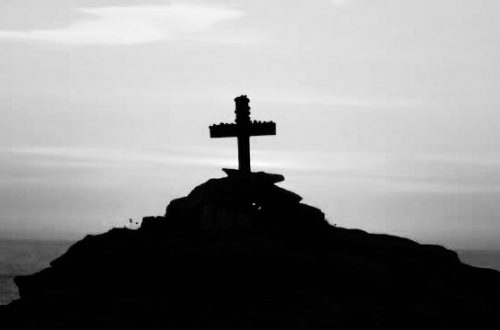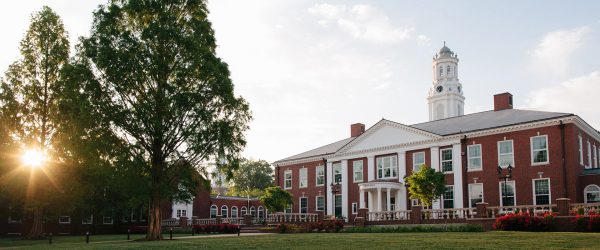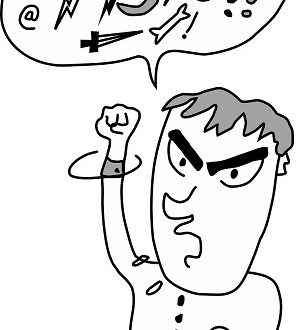 We are having a genuine religious liberty imbroglio here in Louisville, Kentucky, and it is time for Christians to pay attention.
We are having a genuine religious liberty imbroglio here in Louisville, Kentucky, and it is time for Christians to pay attention.
The Courier-Journal reports that late in the week, Governor Andy Beshear and Mayor Greg Fischer doubled-down on their ban on church gatherings. Gov. Beshear mainly focused on churches that are gathering together in person. Mayor Fischer took it a step further and forbade drive-thru services where congregants don’t even get out of their cars. Mayor Fischer says that police will record license plate numbers of anyone caught in a drive-thru service and would possibly subject them to a mandatory 14-day quarantine.
If this sounds outrageous to you, that’s because it is.
Don’t get me wrong. I agree with the rationale for churches to suspend in-person gatherings. I’m a pastor myself, and that is exactly what we have been doing at our church since this whole thing began. It’s a burden for us not to meet, but we are more than willing to do our part to slow the spread. We love each other and our neighbors, and we don’t want to be agents that spread this awful plague. We believe not meeting in person is the right thing to do now.
But Mayor Fischer’s directive goes too far. He is singling out Christians for harassment by police if their cars happen to be seen in a church parking lot at Easter—even if they never get out of their cars.
As a result of this policy, a church here in Louisville filed suit against the city of Louisville and the mayor’s directives. Today, a federal judge responded by issuing a temporary restraining order against enforcement of the mayor’s directives. The Courier-Journal reports:
A federal judge has issued a temporary restraining order sought by Louisville’s On Fire Christian Church, allowing the congregation to hold a drive-in style service on Easter.
The church sued Louisville Mayor Greg Fischer and the city of Louisville on Friday, arguing the mayor’s directive for churches to forgo gatherings to help slow the spread of COVID-19 violated Constitutional rights.
I have obtained a copy of the Judge’s order, and it forbids “from enforcing; attempting to enforce; threatening to enforce; or otherwise requiring compliance with any prohibition on drive-in church services at On Fire.” The Judge also offers a lengthy opinion explaining the rationale for his order, and it is quite the read. He writes:
In this case, Louisville is violating the Free Exercise Clause “beyond all question.”
To begin, Louisville is substantially burdening On Fire’s sincerely held religious beliefs in a manner that is not “neutral” between religious and non-religious conduct, with orders and threats that are not “generally applicable” to both religious and non-religious conduct. “The principle that government, in pursuit of legitimate interests, cannot in a selective manner impose burdens only on conduct motivated by religious belief is essential to the protection of the rights guaranteed by the Free Exercise Clause.” …
Louisville has targeted religious worship by prohibiting drive-in church services, while not prohibiting a multitude of other non-religious drive-ins and drive-throughs –including, for example, drive-through liquor stores. Moreover, Louisville has not prohibited parking in parking lots more broadly–including, again, the parking lots of liquor stores. When Louisville prohibits religious activity while permitting non-religious activities, its choice “must undergo the most rigorous of scrutiny.” That scrutiny requires Louisville to prove its interest is “compelling” and its regulation is “narrowly tailored to advance that interest.”
Louisville will be (highly) unlikely to make the second of those two showings. To be sure, Louisville is pursuing a compelling interest of the highest order through its efforts to contain the current pandemic. But its actions violate the Free Exercise Clause “beyond all question” because they are not even close to being “narrowly tailored to advance that interest.”…
In other words, Louisville’s actions are “underinclusive” and “overbroad.” They’re underinclusive because they don’t prohibit a host of equally dangerous (or equally harmless) activities that Louisville has permitted on the basis that they are “essential.” Those “essential” activities include driving through a liquor store’s pick-up window, parking in a liquor store’s parking lot, or walking into a liquor store where other customers are shopping. The Court does not mean to impugn the perfectly legal business of selling alcohol, nor the legal and widely enjoyed activity of drinking it. But if beer is “essential,” so is Easter.
This language is extraordinary, and I believe that it is on target. The Mayor’s policy does not pass constitutional muster. He needs to back down. And citizens who care about religious liberty need to make their voices heard until he does.
The vast majority of Christian churches in Louisville have responded to the COVID-19 plague like ours has. At great cost to our congregations, we have ceased in-person gatherings, and we are determined to bear this burden for as long as necessary. Out of obedience to Christ, we aim to honor governing authorities (Rom. 13:1-7) and to love our neighbors (Matt. 22:39). And we are going to be committed to this even if we are mistreated or generally unappreciated for it.
Our church has been praying for Mayor Fischer, and I assume he has good motives here. He didn’t wake up one day and decide, “Let’s pick on the churches today.” No, he’s just trying to slow the spread like the rest of us are, and I for one am grateful for that. Nevertheless, he has overstepped in this matter, and he needs to back down. Whether he realizes it or not, he has singled out worshippers for harassment by police for no good reason. He also sets a precedent that politicians in the future could follow for more malignant purposes. This cannot stand.



